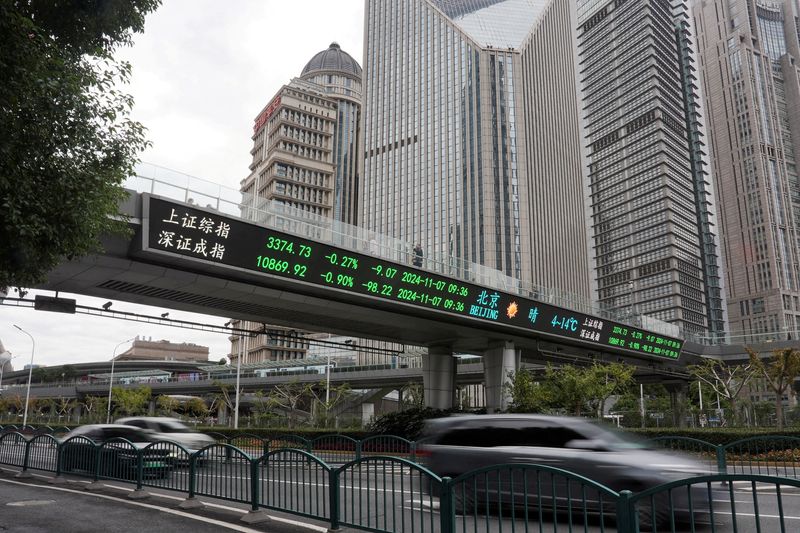SHANGHAI/HONG KONG (Reuters) -Major Chinese fund companies announced a big reduction in fees for a batch of equity exchange-traded funds (ETFs) on Wednesday, intensifying price competition in the rapidly expanding $400 billion sector of the market.
The move to cut management and custodian fees by as much as 70% came a day after Wu Qing, China's chief securities regulator, pledged to encourage index investment and fund industry fee reform.
ETFs - funds that typically track an index and trade on an exchange - have boomed this year as fund companies compete fiercely to lure investors disillusioned by poorly performing active fund managers. The latest fee cuts are expected to potentially channel new capital into a waning bull market, but will also hurt industry margins.
"A lower price point is emerging for ETF fees. This may kindle wider fee compression in the coming quarters," fund consultancy Z-Ben Advisors said in a note to clients.
"Managers must adapt and internalize costs to align with the direction of policy."
China Asset Management Co (ChinaAMC), the country's top ETF manager, said in a statement it would cut fees in eight ETF products, including the 160 billion yuan ($22.10 billion) China SSE (LON:SSE) 50 ETF, to "lower investors' wealth management cost".
The management fee would be slashed by 70% to 0.15% from 0.5%, while the custodian fee would be halved to 0.05%.
Fund companies including E Fund Management, Huatai-PineBridge Fund Management, Harvest Fund Management and HuaAn Fund Management made similar statements.
Net inflows into China's onshore ETFs have exceeded 900 billion yuan so far this year, on track to register the biggest inflows over the past decade, according to BNP Paribas (OTC:BNPQY).
China's stock ETFs, which hit 1.81 trillion yuan at the end of June, have already exceeded 3 trillion yuan. That is a 66% jump in less than five months.
The boom was partly aided by state funds piling into a struggling market early in the year, and by a flurry of government stimulus measures for the ailing economy in recent month.
The fee cuts will benefit sovereign fund Central Huijin, which holds more than $100 billion worth of ETFs.
Cut-throat competition for market share also helped drive down fees and attract inflows.
Most active funds were caught off guard by China's sudden, stimulus-led bull run that started in late September, and their conservative positions meant they could not beat the surging indexes.
An index trading China's active equity funds has gained just 3% this year, far lagging the benchmark index CSI300, which has jumped 16%.
"Active fund managers cannot even beat the market, and they have lost trust with investors," said Lu Deyong, an individual stock trader in northeastern China. "Retail investors now prefer to place their bets via ETFs."

China's passive funds last month exceeded active funds in their China stock holdings, according to the official Shanghai Securities News.
($1 = 7.2409 Chinese yuan)